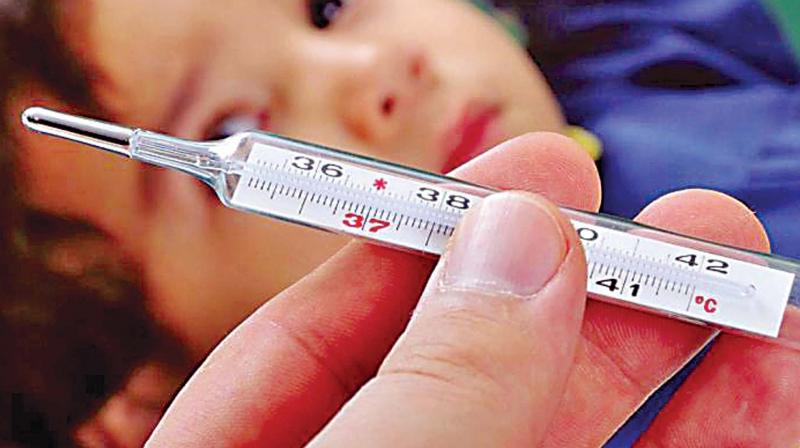No outbreak of mosquito-borne diseases, say authorities
City hospitals have seen a decline in the number of mosquito borne diseases such as chikungunya, dengue and malaria in last two months.

Chennai: Though the survey reports of Public Health Association's Tamil Nadu chapter revealed high mosquito density in the city, especially northern parts including Tondiarpet, Washermanpet, Royapuram and Tiruvottiyur, the incidence of mosquito-borne diseases has seen a downward trend at government hospitals in the city, say hospital authorities.
The recent data by National Vector Borne Disease Control Programme reveals that a total of 1,892 malaria cases have been recorded in the state, after blood slide examination of more than 39 lakh slides. Dengue has affected around 1,701 people and a death has been recorded till July this year in Tamil Nadu. In all, 113 cases of Chikungunya have been reported since January.
With the recent rains in the city for past few days, the concerns regarding increase in the breeding of vectors and thus, risk of mosquito-borne diseases was expected.
However, city hospitals have seen a decline in the number of mosquito borne diseases such as chikungunya, dengue and malaria in last two months.
Rajiv Gandhi Government General Hospital witnessed a decrease in the number of cases from 121 in July to 87 in August, while 100 cases were reported in June. The dengue cases at the hospital have not crossed 50 since January and there are less than ten cases of Chikungunya registered so far.
“There are one or two cases of fever being registered on a daily basis which used to be around 100 last year. Dengue cases soared high in north Chennai with government hospitals reporting eight new cases in one week last year, with high incidence in Vyasarpadi, Washermanpet, Royapuram and Mannadi. However, this year there has been no outbreak reported from any part of north Chennai,"” said hospital authorities at Rajiv Gandhi Government General Hospital.
Stanley Medical College and Hospital sees most number of patients from northern parts of Chennai and there have been no considerable rise in the number of patients since last two months. “We have been receiving two or three cases of fever each day and even after the reports that claim high mosquito density in the northern parts, we have received a total of 93 cases in August, which was 113 in July and 110 in June. Dengue cases have been 7 this month, which was 8 last month” said resident medical officer of Stanley Medical College, Dr Ramesh.
The overall numbers of mosquito borne diseases and fever has reduced considerably.
Kilpauk Medical College has recorded 36 cases of dengue since the beginning of the year, and the numbers of cases have reduced from 10 cases in June to 7 in July and August.
The fever admissions reduced from 83 to 79 in last two months. Institute of Child Health received 1146 cases of fever with around 10 cases of dengue in July, while there were 1224 cases of fever in August and five cases of dengue at the hospital.
When contacted, public health director Dr K Kolandaisamy said that though the survey reports of Public Health Association’s Tamil
Nadu chapter have been reported, the state health department has not received any updates on the rise in mosquito density in any particular part of the city. “We have not reported any kind of outbreak in any part of the city due to mosquito-borne diseases and the breeding checks are on track. We are keeping a close watch on the number of cases of dengue and malaria to arrest any increase in the numbers,” he said.
Government buildings, home to mosquitoes
The survey, undertaken by the Indian Public Health Association’s Tamil Nadu chapter had reported that there was a higher mosquito density in northern parts of Chennai, while south Chennai had a lower density of mosquitoes.
The survey being done since February revealed a higher density of dengue causing mosquito Aedes aegypti in areas including Tiruvottiyur, Tondiarpet, Washermanpet and Royapuram since June.
Parts of South Chennai including Saidapet, Adyar, Anna Nagar and Besant Nagar had low mosquito density. The breeding pattern of Aedes aegypti was found to be changed with breeding more prevalent in bigger sources such as overhead tanks and low-level sumps.
The state health department continues to observe every Thursday as anti-dengue day to observe cleanliness and awareness drive on dengue prevention and control. The officials claim to be conducting domestic breeding checks, however, the survey revealed a poor state of government buildings and buildings maintained by public works department.

